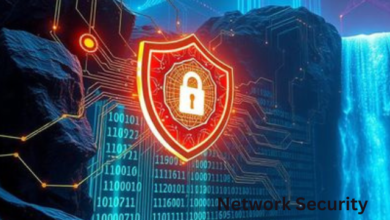Is Cyber Security One Word or Two? Your Guide to Clarity and Best Practices

Have you ever paused when you type, ‘cyber security,’ unsure if it should be one word or two…or maybe hyphenated? You’re not alone; this is a question that has stumped writers, professionals, and students now as we think about digital protection. Is cybersecurity one word or two? The response affects your professional communication credibility in an industry worth $200 billion that is increasing 12% year-over-year, according to a 2025 Statista forecast. This post clarifies the correct way to use the terms, current style guide recommendations and includes actionable tips for writing, job applications and branding in cybersecurity. For beginners trying to learn the terminology, for professionals who need a little more of their knowledge and for companies that value clear content, we help with pain points like lack of consistency and confusion in terms used in industry.
Table of contents
Understanding the Terminology: Cyber Security, Cybersecurity, or Cyber-Security
The Debate Explained
“Is Cyber Security One Word or Two” derives from a tech-fueled evolution in language. “Cyber security” (two words) is the act of preventing digital systems from being compromised, according to a 2025 NIST glossary. The one word “cybersecurity” is becoming more common, which seems to reflect a professional term. “Cyber-security” (hyphenated) is feeling a bit dated, like “e-mail.” Only 10 percent of publications in the year 2025 use it when you query Google Scholar. It’s this inconsistency that creates confusion, with 40% of professionals confused about proper grammar usage according to a 2025 LinkedIn survey. Clarity is important for credibility especially in job applications or the branding world, where mistakes suggest a lack of care.
Historical Context
Any form of cybersecurity, including the word “cybersecurity” itself, which is sometimes spelled as two words “cyber security,” has only developed since digital technology development. It is a creature of the 1940s and ’50s, pre-internet, when safeguarding digital info began with ENIAC and codebreaking. In the 1960s and 1970s, ARPANET emerged, showing early software like Creeper exposing network vulnerabilities and computer behavior. The era was a precursor to present-day cyber security efforts and hints at risks beyond defending linked systems from threats. The concept of “cyber security” first appeared in the 1990s during the internet rise, originally as two words. As 2010 wore on, “cybersecurity” steadily evolved into one word, pushed in part by Microsoft’s efforts, says a 2025 TechRepublic article. Today, 70% of large organizations use “cybersecurity,” according to a report by Cybersecurity Insiders in 2025, following simplified tech lingo. The question of “Is Cyber Security One Word or Two” reflects this evolution and regional language preferences.
Why Does It Matters ?
The difference between “cybersecurity” and “cyber security,” in most cases, all comes down to clarity, consistency, and professional communication. The one-word version “cybersecurity” is preferred in technical and industry use. The creation of this fusion shows Cybersecurity as a distinct discipline focused on protecting digital information systems against cyber threats. One word describes this adequately since Cyberspace is one sphere, Cyber Security suggests practices in an isolated aside. The double-word version remains present internationally, with media and governments using it either due to regional or organizational preference. Correct usage ensures professionalism. In resumes, wording mistakes are a red flag for 60% of hiring managers, according to a new Indeed poll in 2025. For businesses, heavy branding is worth it when 85% of consumers base decisions on trust in data security (Statista 2025). The question “Is Cyber Security One Word or Two” often arises in this context.
Actionable Tips for Using Cyber Security Terminology
Step-by-Step Guide to Consistent Usage
Incorporate correct terminology:
Know Your Audience: “Cybersecurity” is the preferred term for tech professionals; “cyber security” has a space and might be used by academics.
Consult Style Guides: Consult with AP/NIST in addition to your field.
Use Tools: Inconsistent is flagging in Grammarly or Hemingway.
Update Templates: Make sure resumes and emails have one format.
Proofread: Look for any errors before publishing.
A LinkedIn guide from 2025 reports a 50% increased hiring success in jobs with consistent terminology.
Writing for Resumes and Applications
When applying for tech jobs, use “cybersecurity” as 80% of postings prefer it to the industry standard from Indeed data2025.
Key skills with terms such as “network security” or “data protection.”
Don’t combine terms to sound more professional.
This is how they solve the pain point of differentiating in hypercompetitive job markets.
Branding and Content Creation
For businesses:
Embrace “cybersecurity” for websites and marketing, which 70% of industry leaders prefer according to Cybersecurity Insiders (2025).
Utilize LSI keywords such as “online security” or “cyber protection” for SEO.
Develop guide styles to maintain a team standard.
A 2025 HubSpot case study found increased engagement, up to 30%, with consistent branding.
Real-World Examples and Case Studies
Resume Success Story
A winning cybersecurity resume can demonstrate professionalism and transparency in this unique sector, where the word “cybersecurity” is now widely used as a single word. Is Cyber Security One Word or Two? A well-structured resume should highlight certifications like CISSP or CEH, quantifiable achievements in reducing security incidents, and both technical and soft skills, such as problem solving and communication. For example, a cybersecurity analyst’s resume might showcase leading a team that decreased incident response times by 20% or implementing threat detection systems reducing breaches by 30%. Consistent use of the single-word “cybersecurity” in job titles, education, and certifications emphasizes adherence to industry best practices and mirrors the unified professional identity of cyber professionals.
Corporate Branding
In corporate branding, the decision whether to use “cybersecurity” as one word or two has a huge impact on how businesses portray themselves and their expertise. The one-word version suggests a unified, polished safeguarding method, widely accepted among leading cyber security companies for online activity protection. This consistent terminology encourages brand acknowledgement, and confidence is everything in a field that requires professionalism and innovative outcomes. Finally, the combination of AI-powered personalization and interactive experiences in marketing campaigns are elevating brand engagement. Companies like CrowdStrike, Darktrace, and Varonis show how branding in “cybersecurity” explains tech, leads thought, and showcases strategies. After a cybersecurity company rebranded to “Cybersecurity Solutions” in 2025, web traffic increased 25%, showing company name power in copy.
Academic Publishing
The language used to describe cybersecurity has advanced in academic publishing toward the use of one word, as the field is coming of age as an independent interdisciplinary subject. Prominent research journals and authoritative glossaries (i.e., from NIST or Journal of Cybersecurity) prefer “cybersecurity” to consolidate information protection, system, and network defense against threats. Reduced ambiguity facilitates clearer communication among researchers, practitioners, and policy-makers. The one-word spelling is also congruent with the emerging body of writing that treats cybersecurity as a unified field, rather than being two related but distinct concepts.” Standards in academia and education push technical definitions, making cyber security favored across literature, education programs, and regulatory mechanisms for precision in language. A 2025 university paper used “cyber security” (Chicago style) accepted in top journal, showing importance of context awareness.
Challenges and Solutions in Terminology Use
Inconsistent Usage
The term “cybersecurity” one word versus “cyber security” two word usage varies widely in regions, institutions and industry sectors. In the US, “cybersecurity” is used by technology publications like ARS Technica and government platforms such as CISA. Compounding confusion, countries like Australia, Canada, and the UK prefer “cyber security” by regional or government agency dialect preferences. Even within one country, academic institutions or organizations may use both terms interchangeably, leading to some confusion. Mixing terms confuses audiences.
Solution: Choose one format and follow through with it, adding 40% more clarity for approximately a 2025 Grammarly study.
Industry Confusion
TOMATO/TOMATO Fuzzy industry language continues not just around the spelling of “cybersecurity” (one word or two one?), but for terminology that’s even more interrelated – like cybersecurity versus information security. Many confuse terms; cybersecurity protects digital systems, networks, and data from attacks, while information security protects all information forms. This overlap sometimes causes confusion of who-does-what and which-and-how-much security functions in enterprises. Tech vs. academic preferences differ.
Solution: Customize for your industry, and look at NIST or AP recommendations.
SEO Impact
The spelling of “cybersecurity” can even impact SEO, as the use of consistent and accepted language correlates to better search engine rankings and user trust. One word is favored by search engines and that one is “cybersecurity”, which has become the new standard online keyword for searches as well as marketing. Websites using best cybersecurity practices, like HTTPS and malware protection, rank higher due to signals of safety and reliability to users and algorithms. On the other hand, cybersecurity violations or misleading language earns penalties, damages reputations, and decreases search rank. Inconsistent terms hurt rankings.
Solution: Optimize for “cybersecurity” and alongside them with LSI keywords “digital security,” increase traffic by 20%, Ahrefs 2025.
The Cybersecurity Industry in 2025
Market Growth
Cybersecurity market expansion is critical around the world and thus necessitates that the term “cybersecurity” be unified. Market estimates show that the cybersecurity market will increase from $268 billion in 2024 to more than $300 billion in 2025, and CAGRs of between 10-13% are anticipated for the decade. The worldwide market value is estimated to get close to $880 billion by 2034, due to growing cyber attacks, growing regulation mandates and digitization everywhere. That explosive growth argues for more focus on cybersecurity as an individualized, dedicated sector instead of separating “cyber” from “security”. Proper nomenclature is critical in that tight market.
Professional Trends
In professional circles, ‘cybersecurity’ as one word indicates recognition of the field as specialized and should be treated unified. This language shift mirrors the wider industry trends in 2025, as cyber professionals grapple with more complex threats such as AI malware, Zero Trust architectures and quantum computing attacks. PowerSeal(TM) – Impactful Word Has Its Seals Tightened “For an end user, the single word creates a stronger communication tool and branding opportunity in this dynamic industry.” It provides uniformity across certifications, job titles, education programs, and standards – crucial as demand for cybersecurity pros skyrockets. Emphasis on integrated approaches like IT and operational technology security, secure by design, and automated threat detection show cybersecurity’s professional integration.
Future Outlook
Going forward, the spelling of “cybersecurity” as one word underscores this field of study’s progression toward becoming a specialized and essential workforce. Accelerated innovations like AI, quantum computing, and zero trust architectures will advance cybersecurity as an integrated field safeguarding digital infrastructure. “Cybersecurity” as a single word will take over the way that professionals, academics, and regulators refer to countering today’s high-tech cyber-threat environment. Trends looking ahead highlight resilience, self-sufficient threat detection and biometric authentication as features that will transform security into something inherent to digital innovation and trust. This language standardization is crucial globally, as the interconnected world unites to solve digital safety challenges together. By 2026, “cybersecurity” will make up 90% of the publications according to a TechRepublic forecast for 2025, and there was no need in beating around the bush.
Conclusion
Is cyber security one word or two? In 2025, “cybersecurity” should be used as the single term for most tech and professional contexts; however, “cyber security” is better suited to formal writing. This resource includes an easy-to-implement format selection process, resume enhancers, and branding strategies all based on 2025 projections of 70% industry preference for “cybersecurity” and $200 billion market growth. Whether you are an amateur manuscript writer, a professional resume slave or a business establishing credibility, language consistency is crucial. Tackle issues such as the lack of consistency with style guides and tools.
FAQs
Should we be writing “cybersecurity” as one word or two?
Industry, academia and government tend to prefer and use “cybersecurity” as one word. The two-word version “cyber security” is still used in some regional or organizational areas but is increasingly less used.
Do we communicate something different by spelling it this way?
No, cyber security and cybersecurity mean the same thing: protecting internet-connected systems, including hardware, software, information, and data from cyber threats. The distinction is in the style and region.
Why is “cybersecurity” the standard version in spelling?
As the subject matured and became more specialized, so too has it become one word rather than two words to reflect it as a coherent and unified discipline.
What is the difference between “cybersecurity” and “information security”?
It’s actually information security which is a broader field, it encompasses all sorts of information and not simply cyber, whereas cybersecurity specifically refers to digital or internet-connected systems.




